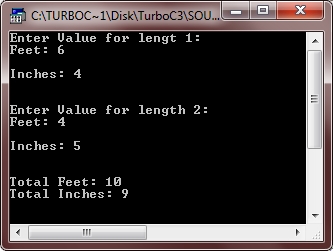Dev C++ I Can 't Call By Reference
Call Center Call Recording Call Tracking IVR Predictive Dialer Telephony VoIP Web Conferencing. Brand Management Campaign Management Digital Asset Management Email Marketing Lead Generation Marketing Automation SEO Digital Signage. Dev-C Dsiplaying images Re: Dev-C Dsiplaying images. C and C reference. From cppreference.com. C reference C98, C03, C11, C14, C17, C20. Compiler support Freestanding implementations. Basic concepts C keywords Preprocessor Expressions Declaration Initialization Functions. Apr 21, 2012 For sarbayo: thanks for the observation, but I'd like (without offending) you see carefully the compiler registry. I also tried to change to wxDev-C, but it didn't work. In the case of code::blocks, I'd like to install but I can't due to the possible compiler corruption (I mean, that in code::blocks happens the same thing as in Dev-C).
#include //iostream.h for turbo c, iostream for dev cpp #include using namespace std; void callbyref(int &a,int &b); // function declaration.
- C++ Basics
- C++ Object Oriented
- C++ Advanced
- C++ Useful Resources
- Selected Reading

The call by reference method of passing arguments to a function copies the reference of an argument into the formal parameter. Inside the function, the reference is used to access the actual argument used in the call. This means that changes made to the parameter affect the passed argument.
To pass the value by reference, argument reference is passed to the functions just like any other value. So accordingly you need to declare the function parameters as reference types as in the following function swap(), which exchanges the values of the two integer variables pointed to by its arguments.
For now, let us call the function swap() by passing values by reference as in the following example −
When the above code is put together in a file, compiled and executed, it produces the following result −
- C++ Basics
- C++ Object Oriented
- C++ Advanced
- C++ Useful Resources
- Selected Reading
A reference variable is an alias, that is, another name for an already existing variable. Once a reference is initialized with a variable, either the variable name or the reference name may be used to refer to the variable.

References vs Pointers
References are often confused with pointers but three major differences between references and pointers are −
You cannot have NULL references. You must always be able to assume that a reference is connected to a legitimate piece of storage.
Once a reference is initialized to an object, it cannot be changed to refer to another object. Traktor pro controller editor. Pointers can be pointed to another object at any time.
A reference must be initialized when it is created. Pointers can be initialized at any time.
Creating References in C++
Think of a variable name as a label attached to the variable's location in memory. You can then think of a reference as a second label attached to that memory location. Therefore, you can access the contents of the variable through either the original variable name or the reference. For example, suppose we have the following example −
We can declare reference variables for i as follows.
Read the & in these declarations as reference. Thus, read the first declaration as 'r is an integer reference initialized to i' and read the second declaration as 's is a double reference initialized to d.'. Following example makes use of references on int and double −
When the above code is compiled together and executed, it produces the following result −
References are usually used for function argument lists and function return values. So following are two important subjects related to C++ references which should be clear to a C++ programmer −
C++ Function Call By Reference
| Sr.No | Concept & Description |
|---|---|
| 1 | References as Parameters C++ supports passing references as function parameter more safely than parameters. |
| 2 | Reference as Return Value You can return reference from a C++ function like any other data type. |



